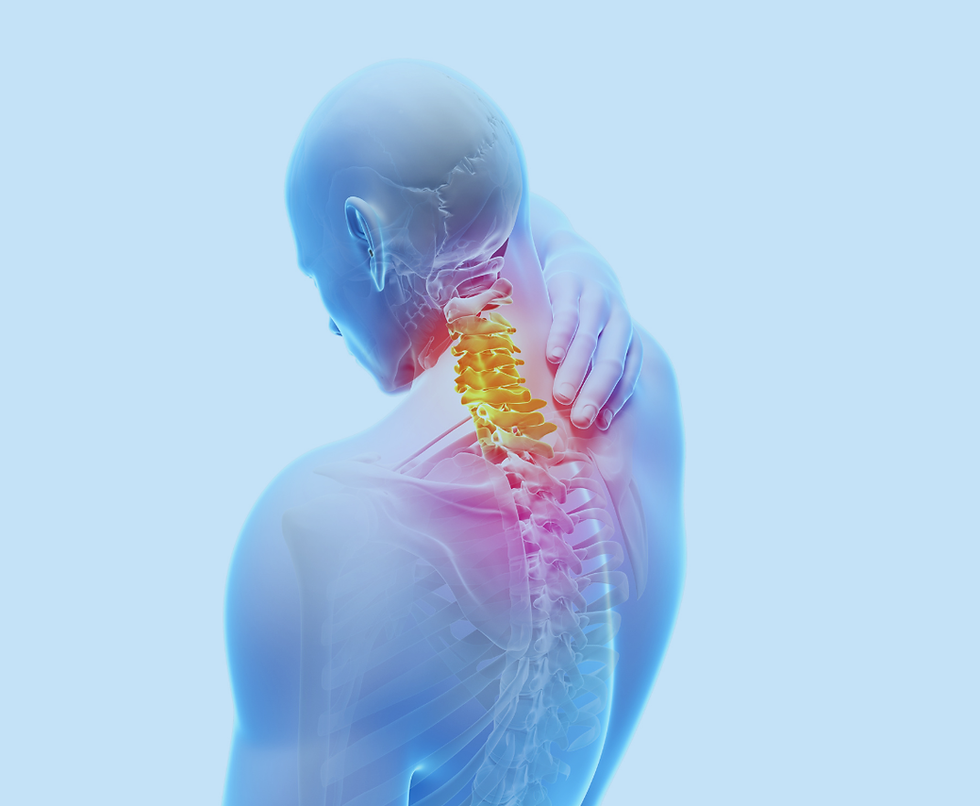

About Robyn Scholz
Robyn Scholz Physiotherapy is committed to delivering individualised physiotherapy care to people of all ages - from newborns to the elderly.
Robyn focuses on treating a variety of injuries and conditions, using a “hands – on” approach with up-to-date research.
Robyn has a background in Functional Medicine, and with this knowledge and an emphasis on holistic healing and treating the root cause of a condition, she strives to revitalise mobility, alleviate pain, and enhance overall well-being. Her clinic is a sanctuary of healing and growth, where every client's distinct journey is respected, and their unique needs are compassionately addressed.
Our Services

Shockwave Therapy
Shockwave therapy is a non-invasive treatment that is used to treat a variety of conditions.
Shockwave uses high energy acoustic pulses which are applied directly to the area of injury as well as to the surrounding tissue. This high energy pulse helps with pain relief, it is used to break down adhesions, scar tissue, calcifications and trigger points in the tissue. It also helps to increase blood flow to the area, and it stimulates tissue healing, repair and regeneration. It triggers the bodies’ natural healing response which leads to a much faster and more effective healing period.
Shockwave is commonly used on tendinopathy injuries such as tennis elbow, plantar fasciitis, Achilles tendinopathy or any other tendinopathy injuries. It is also used on soft tissue damage such as muscle strains and tears, it helps to break down calcifications, it is used on muscular pain, on bursitis and many other conditions.
Shockwave can be administered as part of a normal physiotherapy session, as well as a stand-alone treatment – only once the patient has already been assessed in an initial consultation.

Pre and post-operative physiotherapy and rehabilitation
1. We offer rehabilitation to prevent surgery, where possible.
2. We offer Pre-operative rehabilitation to strengthen patients before surgery to allow for better outcomes post surgery.
3. Post- operative rehabilitation post orthopaedic surgery.
4. We work closely with the surgeons in the area and follow up to date rehabilitation protocols.

Dry Needling
1. We offer dry needling as as adjunct to hands-on treatment. 2. Dry needling is a technique where an acupuncture needle is used to release a myofascial trigger point and increase blood supply to the area, thereby assisting in healing and pain relief.

Chest Physiotherapy
1. Chest conditions such as pneumonia and bronchitis can cause a build up of phlegm in the chest. Physiotherapy can assist in loosening the phlegm and clearing it. 2. Nebulising, different breathing techniques and percussions are used to help clear the chest and prevent any complications from a phlegm build-up.

Breastfeeding Complications
1. Breastfeeding is a special part of the bonding process between mother and child. Sometimes complications can arise which can set back this process. Physiotherapy can help with treating complications such as cracked nipples, engorgement and mastitis. 2. Laser and ultrasound are used to assist the healing process in these conditions as well as latching and feeding advice to prevent recurrence in the future.

Colic Babies
1. Colic has become an umbrella term that is given to healthy, well fed babies that constantly cry or struggle to settle. The crying can be accompanied by symptoms of apparent stomach cramping, increased wind and general discomfort. 2. The cause of colic is unknown but one of the theories is related to the vagus nerve. This nerve originates in the brain and runs through the neck and upper back as it travels and supplies the muscles of the gut. If this nerve isn’t functioning properly the muscles of the gut can be affected – which can cause symptoms of colic. 3. Babies spend 9 months growing in-utero in a bent forward position and they naturally still favour this bent forward position for 2-3 months after birth while they are developing. This bent forward position can lead to stiffness of the neck and upper back and this stiffness can potentially cause a restriction on the vagus nerve 4. Physiotherapy works on gently releasing the tight muscles and gently mobilizing the stiff joints of the neck and back. This relieves the pressure on the vagus nerve – allowing for optimal supply of the gut and relief of colic symptoms.

Craniosacral Therapy
1. CranioSacral therapy is a gentle alternative form of therapy that is used to enhance the functioning of the craniosacral system. 2. This system is made up of the membranes and the fluid that surround the brain and the spinal cord. 3. The treatment involves a very light touch therapy on the skull and various other body parts that enhances the function of the craniosacral system. This has a direct effect on the central nervous system which then helps every other system in the body to self regulate and heal. 4. Craniosacral therapy is used to treat babies with colic, headaches, sinuses, jaw pain, neck pain/whiplash, most musculoskeletal pain and injuries, chronic pain and also emotional stress such as depression and attention deficit disorder.

Biomechanical Assessments and rehabilitation for improved sport performance and injury prevention
A biomechanical assessment is an examination of how your body moves. It is used to identify any structural abnormalities, muscular imbalances or joint restrictions that could be contributing to pain or discomfort. We perform this assessment to guide you on correct rehabilitation and correct form while performing exercises or sport, in order to optimise your performance and minimise your injury.
Contact
Address:
Rocklands Health and Movement Centre,
14 Bel Ombre Road, Constantia, Cape Town, 7806


